Latest News
Survey Finds Afghans More Pessimistic on Security, Future
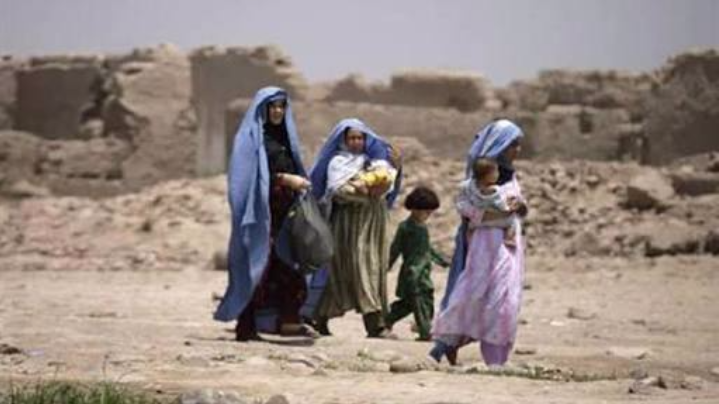
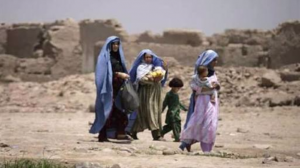 Growing insecurity, corruption, rising unemployment and slow job growth have caused more pessimism among Afghans about their future, damaging public confidence in the government, says the Asia Foundation.
Growing insecurity, corruption, rising unemployment and slow job growth have caused more pessimism among Afghans about their future, damaging public confidence in the government, says the Asia Foundation.
Released in Kabul on Wednesday, the latest annual survey of Afghan attitudes and opinions covers more than 87,000 men and women. It provides a unique portrait of evolving public perceptions on a variety of issues touching the masses.
Importantly, more rural men now support women’s right to vote and work outside their homes. The 2016 survey polled 12,658 respondents from 16 ethnic groups across all 34 provinces, including insecure environments.
The falling sense of optimism largely stems from the failure of peace talks with the Taliban earlier this year, new incursions and record civilian casualties. The withdrawal of foreign troops in 2014 can still be felt in the economy.
Abdullah Ahmadzai, the Asia Foundation’s country representative, said: “Afghanistan is emerging from decades of war and conflict. For the moment, a sense of personal safety and empowerment remains elusive.”
The findings illustrated Afghans’ dissatisfaction with their government, job growth and household finances, he said, adding the nation’s security, political and economic transitions were still unfolding and more time was required for progress in these areas.
Only 29.3% of Afghans say the country is moving in the right direction, the lowest level of optimism since 2004. A marked rise in civilian casualties and increasing violence has contributed to the highest recorded level of fear in over a decade: 69.8% of Afghans are afraid for their personal safety.
According to the study, fear is still the most pronounced in the southwest at 82%, and in Helmand, 92.3% say they are afraid sometimes, often or always, a 7% increase since 2015 and a 25% increase since 2014.
At the same time, although general awareness of ISIS/Daesh has increased from 74.3% in 2015 to 81.3% in 2016, the perception that the group is a threat to security actually fell from 54.2% in 2015 to 47.9% this year.
The percentage of Afghans interested in migration has decreased significantly from 39.9% in 2015 to 29.6% this year, the largest drop on record in the survey which occurred even though unemployment rates remain high.
Afghans say the biggest problem facing youth is unemployment, 71.2%, and more than half (51.5%) cite unemployment as a reason they would leave the country if given the opportunity. Factors that might explain a decreased desire to migrate include the destination’s reception and resettlement policies.
Asked about their household financial position, 36.6% say their financial situation has worsened, compared to 29.7% in 2015. The most affected areas include provinces that once housed foreign military camps, notably near Bagram Air Base.
“Confidence in public institutions and NGOs is at an historical low. By comparison, Afghans say they are most confident in, first, their religious leaders (66.1%), and second, the media (64.5%),” the survey says.
Radio remains the most popular source of information, with 70.5% of respondents receiving news and information from it, followed by television at 66.4%. Nearly two-thirds of Afghans (64.5%) report watching TV.
As many as 74.0% say women should be allowed to work, a record high that appears related to the depressed economy and need for dual-earner households. Afghan support for women in leadership positions remains mixed.
Support for women in local leadership such as community development councils, is significantly higher than support for women in cabinet slots. Education/illiteracy is cited as the biggest problem facing women (36.1%), followed by unemployment (22.9%).
“The survey is a map of social change over time, presenting a body of crucial knowledge for policy making and development programming in a rapidly transforming nation,” remarked David D. Arnold, president of the Asia Foundation. “
Since 2007, insecurity has been the most commonly given reason for why the country is moving in the wrong direction, followed by unemployment, corruption, bad economy and bad government.

Latest News
No destructive groups including Daesh present in Afghanistan: Yaqub Mujahid
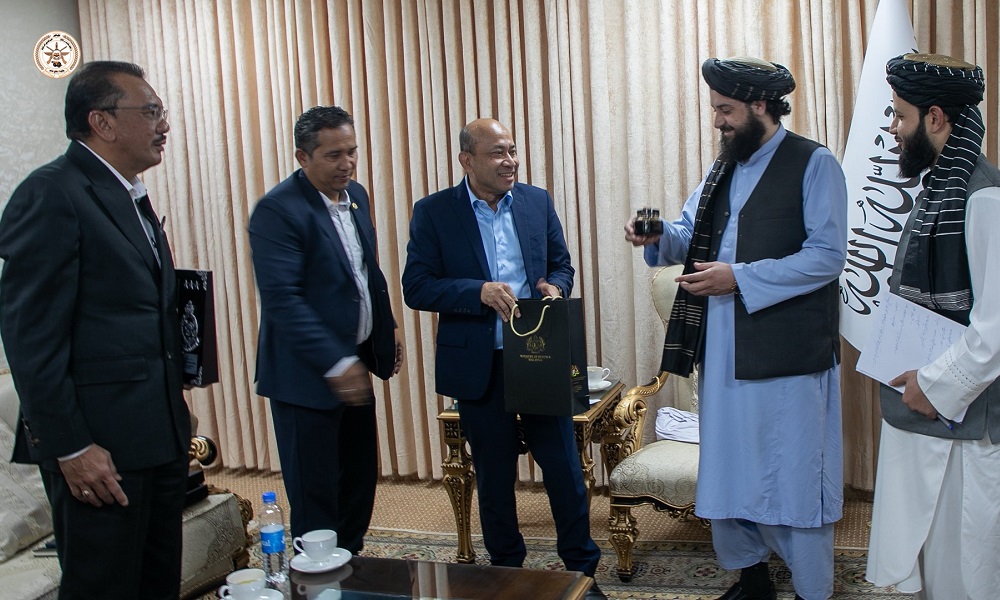
Acting Minister of National Defense Mohammad Yaqub Mujahid has said that no destructive groups including Daesh have physical presence in Afghanistan, adding the Islamic Emirate of Afghanistan (IEA) will not allow anyone to pose threat to any country in the region from the Afghan soil.
Mujahid made the remarks in a meeting with a delegation from Malaysia in Kabul on Thursday.
According to a statement released by the Ministry of Defense, Mujahid highlighted Malaysia’s “good treatment” of Afghan refugees and its long-standing relations with Afghanistan, and said that Malaysia is a powerful Islamic country and visits should increase.
He added that with the establishment of the Islamic Emirate, occupation and war ended in Afghanistan, and the country is fully secure.
Based on the statement, the Malaysian delegation called Afghanistan a friendly country and while emphasizing on comprehensive cooperation, it assured that what they have seen in Afghanistan will be shared with the authorities of their country.
Latest News
EU allocates 17 million euros to support Afghans on the move
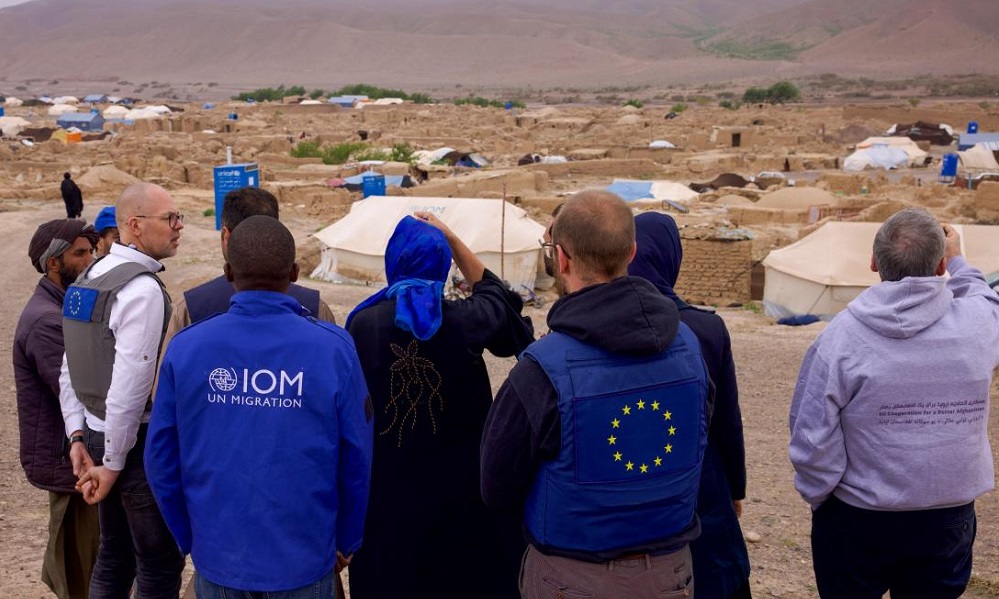
The European Union signed an agreement worth 17 million euros with the International Organization for Migration (IOM) to improve access to basic services, increased economic opportunities and protection for Afghans on the move and their host communities in Afghanistan.
The needs of women and girls are a particular focus of the programme, EU said in a statement released on Thursday.
The statement noted that from January 2023 until April 2024, over 1.5 million Afghans returned from Pakistan and Iran.
“I am deeply moved by the hardship returnees face when being deported to Afghanistan. In a country suffering from poverty and climate change, and in a city that just saw devastating earthquakes, this truly is a crisis within a crisis.”, said Peteris Ustubs, Director for the Middle East, Asia and Pacific of the European Commission’s Department for International Partnerships during the signing ceremony at the IOM transit centre in Herat.
Raffaella Iodice, EU Chargée d’Affaires a.i. to Afghanistan, added “The solidarity of the Afghan people towards their brothers and sisters is an inspiration. We must assure that communities hosting and helping new arrivals are supported. The partnership with IOM ensures access to essential services and provides protection for Afghan returnees and their host communities. As women and girls can be particularly affected, we make sure that all members of society can benefit”.
“IOM’s continued partnership with the EU has been critical in enabling our teams to reach hundreds of thousands of Afghan returnees and other vulnerable communities in the country”, said IOM Afghanistan Chief of Mission, Maria Moita. “Thanks to this renewed commitment, we will be able to focus on addressing the immense challenges in the areas of return and contribute to reintegration, social cohesion, and longer-term solutions for those communities.”
This additional contribution is part of a 5-year programme that is being implemented across Afghanistan and in four countries in the region. It builds on the EU’s previous support to IOM to improve the wellbeing of Afghans forced to return to the country, EU said.
Latest News
Malaysia vows to share its experiences on cyber security with IEA
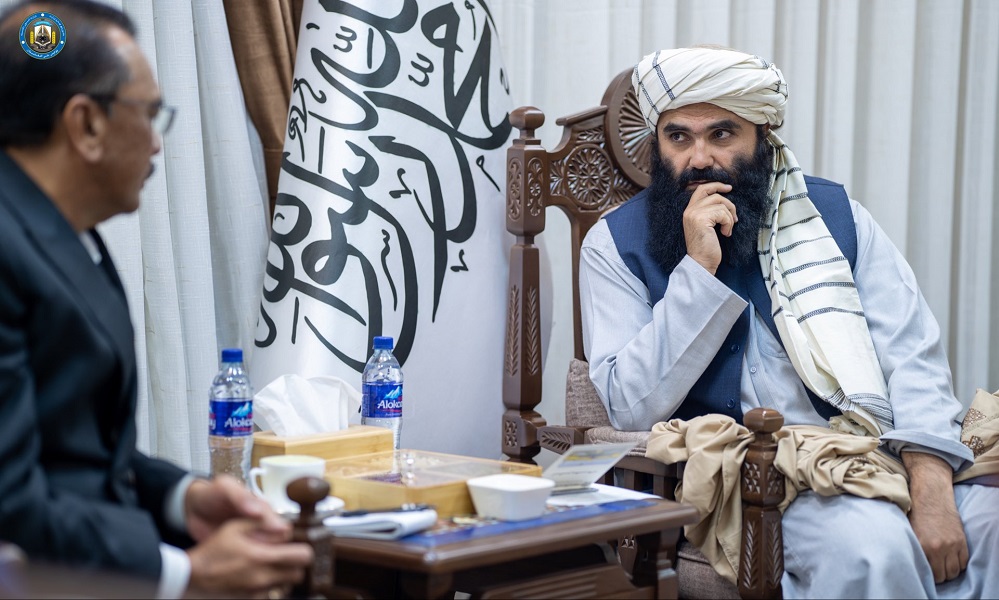
Acting Minister of Interior Affairs Sirajuddin Haqqani has said in a meeting with a delegation from Malaysia in Kabul that Malaysia is an advanced country and that Afghanistan should use is experiences.
According to a statement released by the Interior Ministry, Haqqani, in the meeting on Thursday, emphasized that security is ensured in Afghanistan and unity among Afghans has been restored.
He stated that the Islamic Emirate wants to have close relations and engagement with the world, especially Islamic countries.
The Malaysian delegation consists of representatives of the Ministries of Interior and Defense, and advisers of the Prime Minister’s Office.
According to the statement, a member of the delegation provided information about Malaysia’s capabilities in cyber security and tackling cyber crime, and said that Malaysia will share its experiences in this field with the Islamic Emirate.
In the meeting, the two sides also discussed the fight against drugs, police training, bilateral cooperation and exchange of experiences between Malaysia and Afghanistan.
-

 Latest News3 days ago
Latest News3 days agoRashid Khan named AWCC’s brand ambassador
-

 Regional4 days ago
Regional4 days agoIranian president lands in Pakistan for three-day visit to mend ties
-

 Climate Change5 days ago
Climate Change5 days agoMassive river flooding expected in China, threatening millions
-

 Sport4 days ago
Sport4 days agoKolkata beat Bengaluru by one run in IPL as Kohli fumes at dismissal
-

 Sport4 days ago
Sport4 days agoACL: Aino Mina 3-0 Istiqlal Kabul; Attack Energy 3-0 Khadim
-

 Climate Change4 days ago
Climate Change4 days agoRescuers race to reach those trapped by floods in China’s Guangdong
-

 Business5 days ago
Business5 days agoAfghanistan, Kazakhstan to hold joint expo in Kabul
-

 World3 days ago
World3 days agoMalaysian navy helicopters collide in mid-air, 10 killed
















